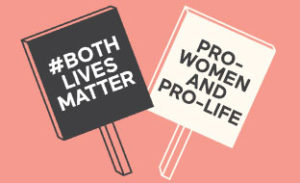It is barely believable that given the situation we are in, Westminster has today issued their new and extreme regulations on abortion services in Northern Ireland. This is despite 79 per cent of respondents, opposing their introduction.
These changes include:
- Abortion for any/no reason up to 12 weeks.
- Abortion up to 24 weeks for undefined mental or physical health reasons.
- Abortion for disability up to birth.
- Abortions can be performed by one medical professional including a midwife or nurse.
- Abortions can be performed outside hospitals, at clinics or in homes.
- Limited conscience protections for medical staff, mirroring England and Wales.
Both Lives Matter has stood for the lives, health and dignity of women and their unborn children since it’s inception. These regulations today attempt to remove any worth and value from unborn children and to remove significant safeguards around the care of vulnerable women. We are heartbroken but will do all we can to continue to ensure the dignity and respect due to women and their unborn children is one day restored.
Dawn McAvoy commented:
“The ground is moving beneath us. We are a nation in the midst of a pandemic, grieving for what is to come; the loss of life, security and the futures we imagined. When death comes near, we are forced to face up to the fragility of human life and we hold our loved ones closer than ever. We fear death and we value life.
Given this season of grief we face, it seems somewhat fitting, that it is now that the new regulatory framework for abortion provision in NI has been announced.
Tragically, too many abortions happen because sadly women fear life and choose death.
It is more important than ever before that those of us who recognise and value both lives in every pregnancy, offer better than abortion. Women and girls deserve access to all the practical, material and emotional services they need to choose life. We all have a responsibility to enable women to choose life and Both Lives Matter will continue, now and into the future to help advocate for women to get the support services they need, for them and their baby.“
ENDS/
For further comment:
Dawn McAvoy, co-founder Both Lives Matter: 07976414817
Marion Woods, services advocate Both Lives Matter: 07809 885390
————————————————————————————————-
Background:
The Northern Ireland (Executive Formation etc) Act 2019 (NI EF Act), which was passed by Parliament in July 2019, placed a duty on the UK Government to reform Northern Ireland’s abortion law given the ongoing absence of devolved government.
Section 9 of the NI EF Act came into force on 22 October 2019 and has the following key components:
1. Firstly, it provided for decriminalisation of abortion through the repeal of sections 58 and 59 of the Offences Against the Person Act 1861 (OAPA), which came into effect on 22 October 2019. At this time a moratorium on abortion-related criminal prosecutions also came into effect, meaning that any police investigations or prosecutions currently underway at that time, in respect of an offence under sections 58 and 59 of the OAPA (regardless of when an offence may have been committed), will not be carried out, and no criminal proceedings may be brought or continued.
2. Secondly, it places the UK Government under a duty to make regulations to implement the recommendations in paragraphs 85 and 86 of the CEDAW Report. The regulations must come into force by 31 March 2020.
The recommendations in the CEDAW Report (set out in Chapter 5) do not mandate a specific legislative model. Rather, the CEDAW Report required abortion services to be decriminalised and provided as part of women’s reproductive healthcare by developing a suitable legal framework and ensuring access to services, as least in the cases of:
(i) Threat to the pregnant woman’s physical or mental health, without conditionality of “long-term or permanent” effects;
(ii) Rape and incest; and
(iii) Severe fetal impairment, including fatal fetal abnormality, without perpetuating stereotypes towards persons with disabilities and ensuring appropriate and ongoing support, social and financial, for women who decide to carry such pregnancies to term.

